Abhinav Alakshendra
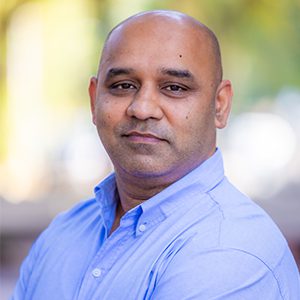
Abhinav Alakshendra
Ph.D., Economics, Kansas State University, Manhattan, Kansas, 2012
M.A., Economics, Gokhale Institute of Politics and Economics, Pune, India, 2005
Abhinav Alakshendra Read More »

Ph.D., Economics, Kansas State University, Manhattan, Kansas, 2012
M.A., Economics, Gokhale Institute of Politics and Economics, Pune, India, 2005
Abhinav Alakshendra Read More »
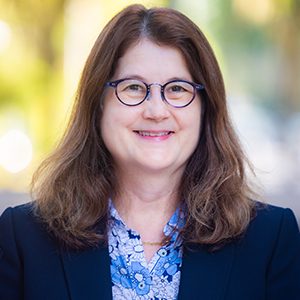
Ph.D., Cornell University 2001
Master of Arts in Urban and Regional Planning, University of Florida, 1990
Bachelor of Science in Business Administration, University of Florida 1986
Areas of Focus:
Planning History and Housing Policy
A key area of Dr. Larsen’s research focuses on members of the Regional Planning Association of America, prominent designers, urbanists, human ecologists, economists, and developers active from the 1920s through the 1950s whose work in regionalism, town building, design, and housing policy established the foundations of today’s sustainability and resilience initiatives. In addition, her research focuses on community engagement to enhance resilience in the face of neighborhood change within marginalized communities. She has published widely on housing policy, neighborhood planning, community engagement, social justice, historic preservation, and planning history.
Bio:
Kristin Larsen, FAICP, Ph.D. (Cornell), MAURP (Florida), BSBA (Florida) is Professor of Urban and Regional Planning, a Fellow in the American Institute of Certified Planners, and the former Chair of the Department of Urban and Regional Planning (URP) and Director of the School of Landscape Architecture and Planning (SLA&P) at the University of Florida. Among the projects she focused on when she worked as a land use and housing planner for the City of Orlando during the 1990s was a neighborhood revitalization project within the historic African American community of Parramore. This professional planning experience inspired her to earn her doctoral degree focused on city and regional planning, planning history, cultural geography, and historic preservation. At UF she has developed new courses in housing policy, historic preservation, and interdisciplinary studies in planning and landscape architecture.
In addition to her responsibilities as a professor, Dr. Larsen served in various leadership positions in the college for over 10 years, including directing the urban and regional planning graduate online degree program, chairing the Department of Urban and Regional Planning, and directing the School of Landscape Architecture and Planning. Notably, she led and coordinated the development of the first fully online graduate degree in urban and regional planning in the U.S., shepherded the department through two accreditation reviews, both securing the maximum 7-year accreditation period with the most recent review including the online delivery of the URP graduate degree, currently the only fully online accredited graduate planning degree in the U.S.
Dr. Larsen’s research on Clarence S. Stein and his colleagues in the Regional Planning Association of America alone has resulted in sixteen publications and numerous presentations at national and international conferences. This research focus includes an examination of the legacy of the Regional Planning Association of America on the 100th anniversary of their founding and her biography of noted community architect Clarence S. Stein. Her peer reviewed research has also appeared in Housing Policy Debate, Journal of Planning History, Housing Studies, Planning Perspectives, and Urban Studies. She has secured over $1 million in internal and external grants awarded as either Principal or Co-Principal Investigator, including the U.S. Department of Housing and Urban Development Urban Scholars Fellowship and a State of Florida Division of Historical Resources Grant. Her examination of the intellectual history of the Regional Planning Association of America continues with her upcoming biography of architect, landscape architect, planner, and housing advocate Henry Wright.
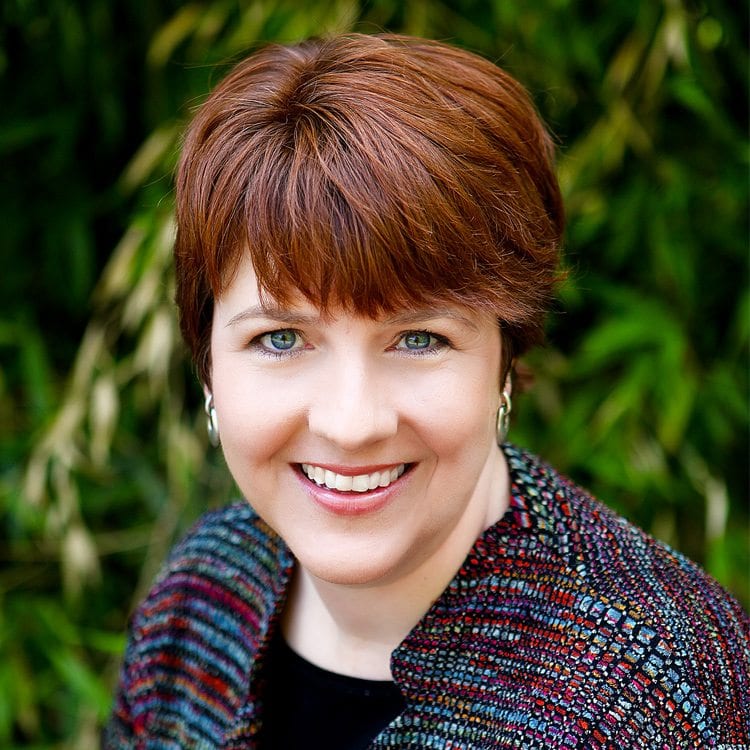
Ph.D., Georgia Tech
City and Regional Planning, Georgia Tech
Areas of Focus: Sustainability (Built Environment Resilience) The core of my research has concerned environmental issues, however I take an integrated, interdisciplinary approach through the planning discipline, working in urban and rural settings. My sustainability work incorporates environmental, social and cultural, and governance aspects, especially community engagement, to create “sustainability science” towards understanding a more sustainable path forward. I also take an “action research” approach in which I create and test new sustainability methods in order to advance sustainability more quickly. Bio: Dr. Frank specializes in planning for sustainability, resilience, and equity. Specific areas include environmental, coastal, rural, regional, neighborhood, and participatory planning. She is the director of the Florida Center for Innovative Communities where she conducts applied, action-research projects to simultaneously assist communities and pilot test innovative planning approaches. At the University of Florida, she has led $1 million in funded research projects, including grants from the National Estuarine Research Reserve System Science Collaborative, Florida Sea Grant, and the inaugural UF-Gainesville Research Award, with the latter project receiving an Award of Excellence from the Florida Chapter of the American Planning Association. Her recent publications have appeared in the Journal of Planning Education and Research and Planning Theory and Practice, and as book chapters for Routledge. Dr. Frank teaches courses in Urban and Regional Planning in the on-campus and online master’s programs. Specific courses include URP 6421 Environmental Land Use Planning and Management, and URP 6931 Community Engagement. She also advises doctoral students and teaches a college-wide course, DCP 6931 Doctoral Core 3 (dissertation preparation and writing for publication). She is a long-standing member of the college’s Sustainability Governing Board, and she has taught a course for the undergraduate major Sustainability and the Built Environment (SBE). Currently, she regularly advises SBE senior capstone projects. Dr. Frank received a doctorate in City and Regional Planning from Georgia Tech, and a master’s degree in Community and Regional Planning from the University of Oregon. Her undergraduate majors were chemical engineering (Georgia Tech) and mathematics (University of Georgia). She previously worked as a planning consultant in Oregon and an environmental engineer in North Carolina. In the distant past, she was an officer in the U.S. Navy and taught at the Nuclear Power School in Orlando (the school’s site is now a traditional neighborhood development, Baldwin Park).
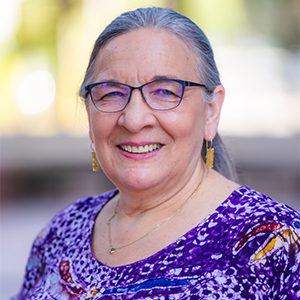
Ph.D., City and Regional Planning, University of California, Berkeley, California, 1996
M.C.P., Community Planning, University of California, Berkeley, California, 1988
M.B.A., Business Administration, University of Wisconsin, Milwaukee, Wisconsin, 1982
A.B., History, Lawrence University, Appleton, Wisconsin, 1979
Areas of Focus: Sustainability (Built Environment Resilience, Renewable Energy, Smart Buildings/Cities) Her research focuses on the coordination of transportation and land use, with a particular focus on planning for sustainable modes of transportation, and its impact on communities, the environment, and public health. Her current research is on the impact of school siting, school transportation and land development patterns on children’s travel, transportation and aging, the changing pattern of travel among millennials, impacts of new transportation technologies on transportation systems, parking supply and demand management, equity in planning, and the incorporation of risk into long-range transportation planning Bio: Ruth L. Steiner, Ph.D. is a professor and director of the Center for Health and the Built Environment in the Department of Urban and Regional Planning and an affiliate faculty in the School of Natural Resources and Environment (SNRE) and the Transportation Institute (UFTI) at the University of Florida. Her research focuses on the coordination of transportation and land use, with a particular focus on planning for all modes of transportation and its impact on communities, the environment, and public health. Her current research is on the impact of school siting, school transportation and land development patterns on children’s travel, transportation and aging, the changing pattern of travel among millennials, impacts of new transportation technologies on transportation systems, equity in planning, and the incorporation of risk into long-range transportation planning. She is co-author of Energy Efficiency and Human Activity: Global Trends and Prospects (Cambridge University Press, 1992) and author of over one hundred book chapters, journal articles, reviews and research reports. She has served on the Pedestrian Committee, Transportation and Land Development Committee and Transportation History Committee of the Transportation Research Board (TRB) and the Scientific Committee of the World Congress on Transportation Research Society (WCTRS). She teaches courses in Transportation Policy and Planning (URP6716), Transportation and Land Use Coordination (URP6711), Planning Research Design (URP6203), Health and the Built Environment (URP6526), Urban Planning Project (URP6341) and Ecological Issues in Sustainable Design (DCP6205). After earning her AB in History from Lawrence University in Appleton, Wisconsin, Ruth worked as a computer programmer and systems analyst for First Wisconsin Bank (now a part of US Bank). During this time she earned a Master of Business Administration (MBA) from the University of Wisconsin, Milwaukee. She later earned a Masters of City Planning (MCP) from the University of California, Berkeley. She then worked for two years as a policy analyst for the Vermont Public Service Board (now the Vermont Public Utility Commission). She returned to the University of California, Berkeley, where she completed her Ph. D. in City and Regional Planning.
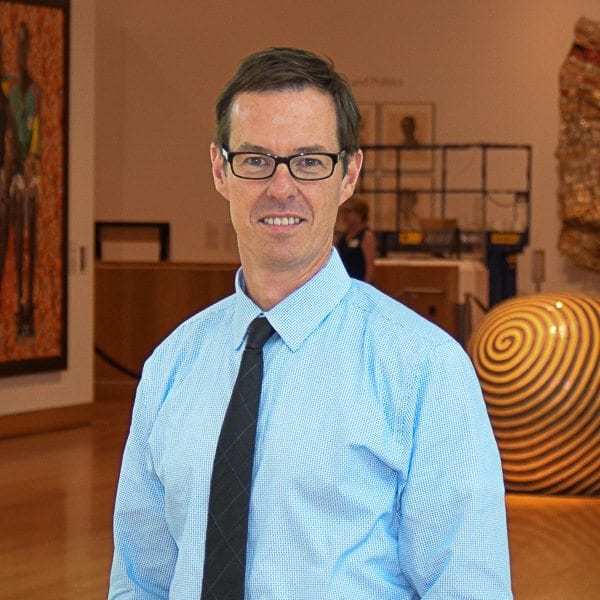
Areas of Focus:
Sustainability ( Building Materials, Built Environment Resilience, Sustainable Architecture and Design, Sustainable Construction, Sustainable Technology)
Primarily focused on high performance materials and assemblies, embodied energy, sustainable decision making in professional practice, building flexibility/longevity, and sustainability in construction.
Bio:
Jason Alread, AIA, LEED AP is a Professor and the former Director of the School of Architecture at the University of Florida. He was educated at the University of Florida and Yale University, and has been a registered architect in professional practice for over 25 years. He was a founding partner in Substance Architecture and an Associate at HLKB Architecture, the 2001 AIA National Firm of the Year.
He is the author of Design-Tech: An Integrated Approach to Building Science and Technology with Thomas Leslie and Rob Whitehead and A Century of Iowa Architecture. Professor Alread has been recognized with over 40 design awards, including two National AIA Design Honor Awards, an AIA National Education Honor Award and two IIDA International Design Awards. The ACSA has honored him with New Faculty Teaching, Faculty Design and Creative Achievement Awards. In 2014 Design Intelligence named him as one of the 30 Most Admired Design Educators in North American Schools.
Professor Alread’s teaching and research focus on the integration of craft and technology, building performance, design methodologies and critical practice. He teaches beginning design and graduate comprehensive studios, methods and materials of construction, detailing and design history. He also coordinates the summer Design Exploration Program for high school students with Professor Emeritus, Martin Gundersen.
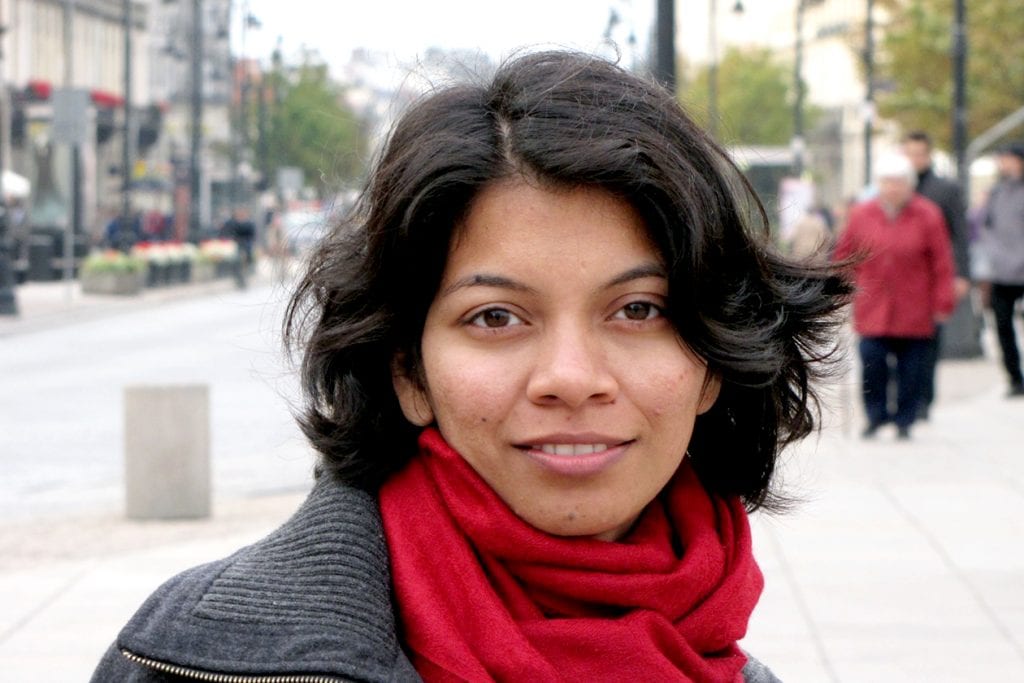
• Master of Landscape Architecture in Urban Design, Harvard University, 2011
• Master of Landscape Architecture, Louisiana State University, 2007
• Bachelor of Architecture, National Institute of Technology, Raipur, India, 2003
Areas of Focus: Sustainability (Built Environment Resilience) Research explores low-cost, resilient landscape infrastructure for water management. Bio: Alpa is Assistant Professor of Landscape Architecture at University of Florida and the Executive Director of ‘Critical Places’, a non-profit based in India that works with marginalized communities for developing solutions to issues of the built environment. Alpa is passionately committed to advocating for and developing the role of landscape architecture in creating socio-culturally integrated solutions to water issues, and designs of human habitats in developing countries through her research, practice and teaching. Her scholarship on vernacular water infrastructure systems of water management in India has been published in diverse venues such as Journal of Landscape Architecture, Landscape Journal, Ground Up, Thresholds, and similar. Alpa’s research and creative scholarship has been supported by grants such as the Dumbarton Oaks Mellon Fellowship in Urban Landscape Studies, and the Landscape Architecture Foundation’s (LAF) Fellowship for Innovation and Leadership. Alpa teaches the Advanced Graduate Landscape Design Studio and the Undergraduate Urban Design Studio in addition to capstone/terminal project seminars. She is a recipient of the UF DCP International Educator of the Year Award, and Council of Educators in Landscape Architecture (CELA) Award for Excellence in Design Studio Teaching. Trained as an architect, landscape architect and urbanist, Alpa brings a rich, multi-disciplinary lens to her work. She holds a post-professional Masters degree in Urban Design from Harvard Graduate School of Design (GSD), a Masters degree in Landscape Architecture from Louisiana State University, and a Bachelor in Architecture from NIT, Raipur, India. She is a licensed landscape architect in Kansas, a licensed architect in India, and a LEED AP, and has worked internationally in design offices in India, USA, UAE and Switzerland. Alpa serves as co-chair of the Diversity, Equity and Inclusion research track of CELA and on the Editorial Board of the Journal of Architectural Education JAE, the Alumni Council of Harvard GSD, and the Board of Directors of the LAF.
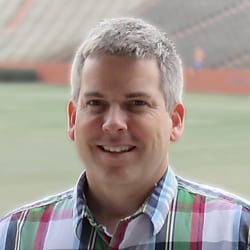
Master of Science, Interior Design, University of Kentucky, Lexington
Bachelor of Science, Interior Design, Radford University, Virginia
Jason Meneely is an Associate Professor in the Department of Interior Design at the University of Florida. He joined the department in 2006 from Cornell University where he worked as a researcher in the Department of Design and Environmental Analysis. Meneely’s research examines strategies for maximizing creativity, human potential, and social engagement through the design of the built environment. He also examines values-driven approaches to technology that support human-centered design processes.
In 2019 Meneely received a national Award for Excellence from the Council of Interior Design Accreditation (CIDA) for developing innovative approaches that leveraged virtual-reality headsets to support inclusive design decisions for people with disabilities. He also received the 2012 Innovation in Education Award from CIDA and was recently honored with a UF Term Professorship (2018-2021). He and his collaborators have received a national Research Excellence Award from the Environmental Design Research Association (2018) and Best Presentation awards at the UB Tech (2013), and the Interior Design Educators Council (2004 and 2002) annual conferences. His research has been published in the Creativity Research Journal and the Journal of Interior Design.
Research
Teaching Focus
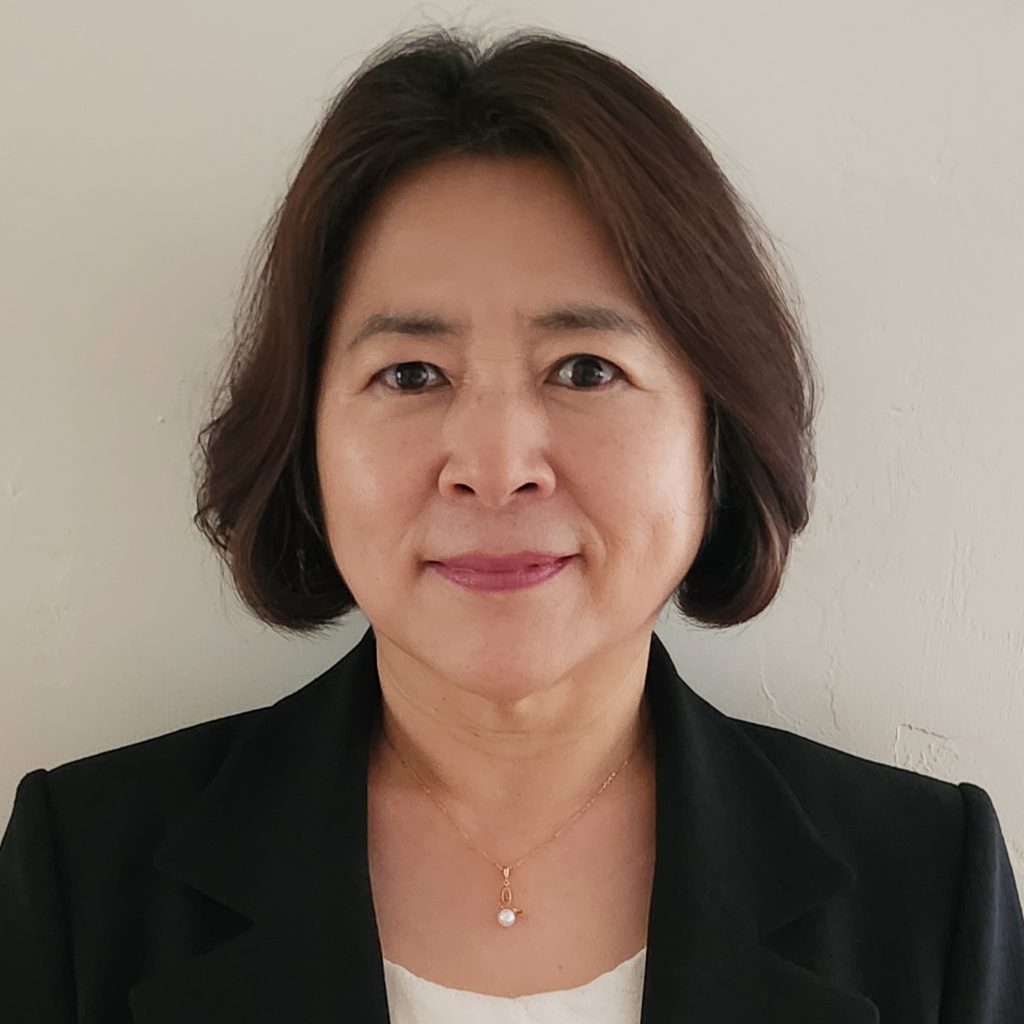
Ph.D. Oklahoma State University
M.S. Oklahoma State University
B.S. Kon-Kuk University
Areas of Focus:
Sustainability (Building Energy, Sustainable Architecture and Design)
The sustainability dimensions of my work are related to sustainability education and lifestyle practices.
Bio:
Nam-Kyu Park is an Associate Professor in the Department of Interior Design. She is a LEED accredited professional and NCIDQ certified interior designer. Also, she possesses Evidence-based Design accreditation (EDAC), and a LC-Lighting Certificate. She teaches a broad range of coursework at both the undergraduate and graduate levels, from design studios focused on retail, hospitality, health care and office environments, to interior lighting design, building systems, interior design detailing, and graduate research seminars. Her research focuses on optimizing well-being, health, and human behavior through the design of the built environment. Theories of environment-behavior and social psychology thread together in her research program using a mixed methods research design. Her principle areas of research address the impact of lighting in interior environments and environmental design for special needs populations. She also examines cultural dimensions of the built environment defining environmental and social sustainability. The scholarship of Dr. Park and her students has been well presented internationally and nationally and has appeared in a variety of scholarly journals. Currently she is serving as an Associate Editor of the Journal of Interior Design.
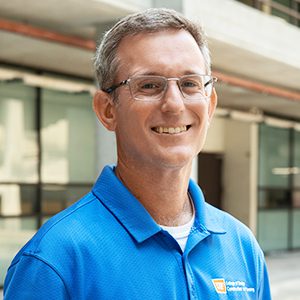
• Master of Landscape Architecture, University of Florida, 2001
• Bachelor of Science in Engineering, Duke University, 1998
Areas of Focus: Sustainability (Building Materials) Scholarship and teaching addresses the application of green stormwater infrastructure and sustainable construction materials at the site scale including transportation corridors.
Bio: Prof. Dan Manley is Associate Dean for Undergraduate Education and Facilities and an Instructional Associate Professor in the College of Design, Construction and Planning. Prof. Manley began his academic career at the University of Florida in 2014 as an Adjunct Lecturer before joining the faculty as an Instructional Assistant Professor in 2016. Prior to serving as Interim Associate Dean in 2024-2025, he served as Interim Chair of the Department of Landscape Architecture for two years (2020-2022) and has also served as the department’s Undergraduate Coordinator and Graduate Coordinator. His scholarly interests center on green infrastructure, landscape construction, and professional practice. Prof. Manley has taught broadly across the landscape architecture curriculum with emphasis in the construction and professional practice. He has also developed and taught Urban Nature and Society, a UF Quest 1 course for all UF majors, and co-leads the department’s student field trips to cities such Seattle and New York. He has served as the chair, co-chair, or advisor for numerous capstones and graduate terminal projects in Landscape Architecture, Urban and Regional Planning, and Sustainability in the Built Environment.
Prof. Manley earned a Bachelor of Science degree in Civil and Environmental Engineering from Duke University in 1998 as well as a Master of Landscape Architecture degree from the University of Florida in 2001. He is a Professional Landscape Architect and practiced for 15 years in both Orlando and Gainesville, Florida. He currently serves on the Executive Committee of the Florida Chapter of the American Society of Landscape Architects.
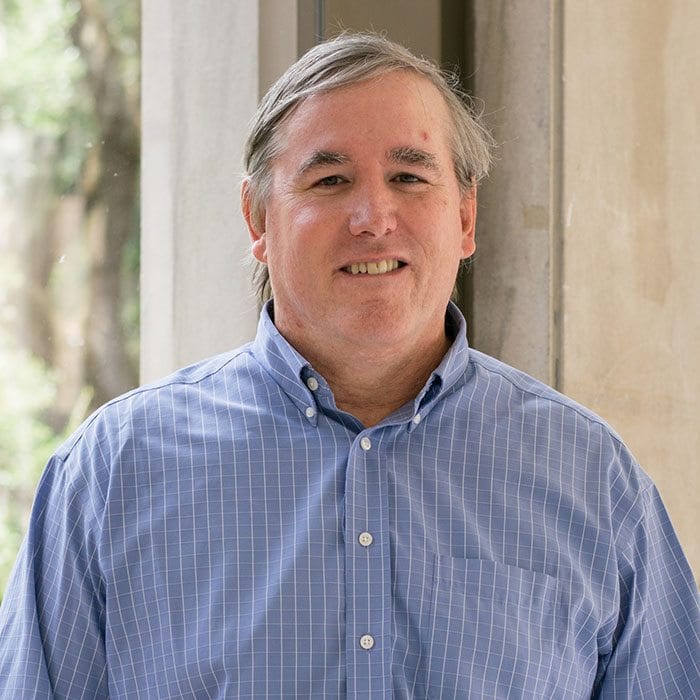
• Ph.D. Wildlife Ecology and Conservation, University of Florida, 2003
• Master of Forest Resources and Conservation, University of Florida, 1992
• B.A. in History and Science, Harvard University, 1989
Tom Hoctor is director of the Center for Landscape Conservation Planning at the University of Florida. He has an undergraduate degree in History and Science from Harvard University and a Masters and Ph.D. in Conservation Biology and Landscape Ecology from the University of Florida.
Dr. Hoctor is an expert on GIS applications for identifying conservation priorities and implementation actions for maintaining biodiversity and ecosystem services including focal species habitat modeling, reserve design, wildlife corridors, recommendations for expanding protected lands to address climate change impacts, and conservation strategies for ensuring effective conservation in a future with continuing conflicts with land use change and habitat loss. He has served as principal or co-principal investigator on many regional-scale conservation analysis and planning projects in Florida and the U.S. His current projects include the Florida Ecological Greenways Network and Florida Wildlife Corridor, the Critical Lands and Waters Identification Project, the Identification of Florida Air Force Installation Conservation Priorities project, and working with the National Wildlife Refuge Association and the U.S. Fish and Wildlife Service on Regional Landscape Conservation Design projects in Florida and the Gulf Coast.
Tom teaches the undergraduate and graduate region planning GIS studios (LAA 4356 and LAA 6656), Landscape Management (LAA 2352), the Conservation Ecology Module of the online Ecological Issues in Sustainability course (DCP 6205), and Directed Study (LAA 6905) courses related to Conservation Biology, Landscape Ecology, ecological connectivity, green infrastructure, etc. upon request with specific graduate students.